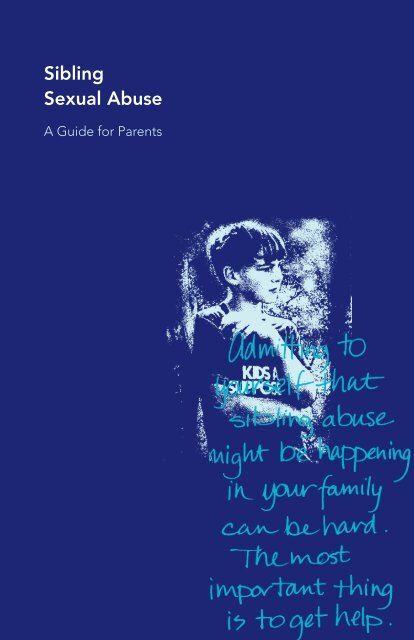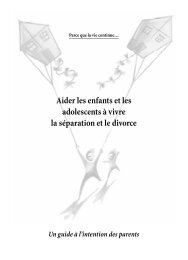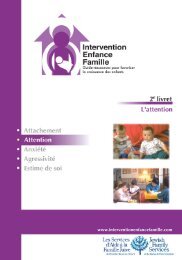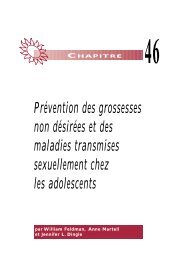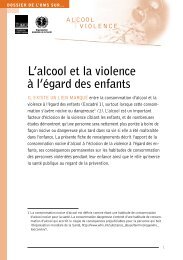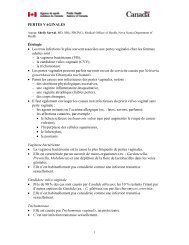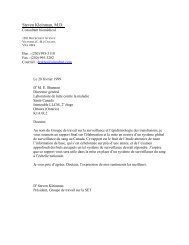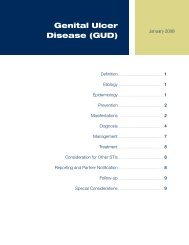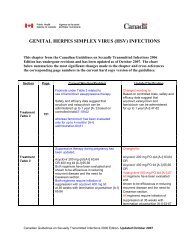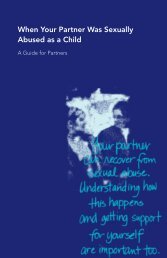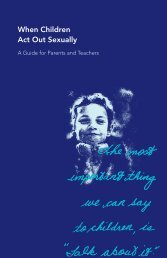Sibling Sexual Abuse: A Guide for Parents (PDF
Sibling Sexual Abuse: A Guide for Parents (PDF
Sibling Sexual Abuse: A Guide for Parents (PDF
Create successful ePaper yourself
Turn your PDF publications into a flip-book with our unique Google optimized e-Paper software.
<strong>Sibling</strong><br />
<strong>Sexual</strong> <strong>Abuse</strong><br />
A <strong>Guide</strong> <strong>for</strong> <strong>Parents</strong>
<strong>Sexual</strong> <strong>Abuse</strong> In<strong>for</strong>mation Series 2008<br />
This is one of ten booklets in the<br />
<strong>Sexual</strong> <strong>Abuse</strong> In<strong>for</strong>mation Series:<br />
SEXUAL ABUSE COUNSELLING<br />
A <strong>Guide</strong> <strong>for</strong> <strong>Parents</strong> and Children<br />
SEXUAL ABUSE WHAT HAPPENS WHEN<br />
YOU TELL A <strong>Guide</strong> <strong>for</strong> Children and <strong>Parents</strong><br />
WHEN GIRLS HAVE BEEN SEXUALLY ABUSED<br />
A <strong>Guide</strong> <strong>for</strong> Young Girls<br />
WHEN BOYS HAVE BEEN SEXUALLY ABUSED<br />
A <strong>Guide</strong> <strong>for</strong> Young Boys<br />
WHEN TEENAGE GIRLS HAVE BEEN<br />
SEXUALLY ABUSED A <strong>Guide</strong> <strong>for</strong> Teenagers<br />
WHEN TEENAGE BOYS HAVE BEEN<br />
SEXUALLY ABUSED A <strong>Guide</strong> <strong>for</strong> Teenagers<br />
WHEN MALES HAVE BEEN SEXUALLY ABUSED<br />
AS CHILDREN A <strong>Guide</strong> <strong>for</strong> Men<br />
WHEN CHILDREN ACT OUT SEXUALLY<br />
A <strong>Guide</strong> <strong>for</strong> <strong>Parents</strong> and Teachers<br />
SIBLING SEXUAL ABUSE A <strong>Guide</strong> <strong>for</strong> <strong>Parents</strong><br />
WHEN YOUR PARTNER WAS SEXUALLY<br />
ABUSED AS A CHILD A <strong>Guide</strong> <strong>for</strong> Partners<br />
To order copies, please contact:<br />
www.phac-aspc.gc.ca/nc-cn<br />
National Clearinghouse on Family Violence<br />
Public Health Agency of Canada<br />
200 Eglantine Driveway<br />
Tunney’s Pasture, 1909D<br />
Ottawa, ON K1A 0K9<br />
TEL: 1.800.267.1291 or 613.957.2938<br />
FAX: 1.613.941.8930<br />
TTY: 1.800.561.5643 or 613.952.6396<br />
E-MAIL: ncfv-cnivf@phac-aspc.gc.ca<br />
CREDITS<br />
Project Coordinator: Leonard Terhoch<br />
Writer: John Napier-Hemy<br />
Revisions: Christina Melnechuk & Louise Doyle<br />
Editors : Joanne Broatch & Liz Scully<br />
Design & Layout: Jager Design Inc.<br />
Également disponible en français sous<br />
le titre : Les agressions sexuelles entre frères<br />
et sœurs. <strong>Guide</strong> à l’intention des parents<br />
Special thanks to the staff at VISAC and the National Clearinghouse on Family Violence and the<br />
many others who gave their ideas and support.<br />
The opinions expressed in this document are those of the authors and do not necessarily reflect<br />
the views of the Public Health Agency of Canada.<br />
VISAC (Vancouver Incest and <strong>Sexual</strong> <strong>Abuse</strong> Centre) is a program of Family Services of Greater<br />
Vancouver. VISAC offers a wide range of services including specialized victim support services,<br />
individual and group therapy <strong>for</strong> children, youth, families, and adults who have experienced<br />
childhood sexual abuse and/or trauma.<br />
Contents may not be commercially reproduced but any other reproduction, with acknowledgements,<br />
is encouraged. All other rights are reserved.<br />
© 2008 Family Services of Greater Vancouver – 1616 West 7th Avenue, Vancouver, B.C. V6J 1S5<br />
THIS PUBLICATION WAS MADE POSSIBLE THROUGH THE FINANCIAL SUPPORT OF THE<br />
PUBLIC HEALTH AGENCY OF CANADA.<br />
HP20-6/5-2007 ISBN 978-0-9809135-5-2<br />
<strong>Sibling</strong> <strong>Sexual</strong> <strong>Abuse</strong><br />
A <strong>Guide</strong> <strong>for</strong> <strong>Parents</strong><br />
This booklet answers these questions:<br />
Why this booklet? 2<br />
What is sibling sexual abuse? 2<br />
What are the effects of sibling sexual abuse? 3<br />
Is sexual curiosity between siblings normal? 4<br />
What is the relationship between sibling sexual abuse<br />
and other <strong>for</strong>ms of abuse? 6<br />
What factors contribute to sibling sexual abuse? 8<br />
Why might it be diffi cult to recognize sibling sexual<br />
abuse in my family? 10<br />
If one of my children is abusing another child in<br />
my family, what should I do? 11<br />
How can I intervene to stop sibling sexual abuse? 13<br />
Will our family ever recover? 15<br />
How can I best prevent sibling sexual abuse in<br />
my family? 15<br />
Kids Help Phone 1.800.668.6868<br />
A <strong>Guide</strong> <strong>for</strong> <strong>Parents</strong> 1
Why this booklet?<br />
This booklet is written <strong>for</strong> parents who know or suspect there is sibling<br />
abuse in their family and want to do something about it. It’s also written<br />
<strong>for</strong> parents who want to understand and prevent sibling sexual abuse.<br />
Many parents are afraid to believe that sexual abuse could be possible<br />
in their family, and this booklet is meant to support parents in facing that<br />
possibility in an in<strong>for</strong>med way.<br />
What is sibling sexual abuse?<br />
In this booklet the word “sibling” is used to refer to children who grow<br />
up in the same family, whether they are step-children, foster children,<br />
adopted children or children by birth. Natural and healthy sexual<br />
exploration between children of similar age, size and developmental<br />
stage and sexual play that is mutual, voluntary and not coercive, is not<br />
sibling abuse. <strong>Sibling</strong> sexual abuse, or incest, can involve a brother and<br />
sister, two sisters or two brothers but abuse by an older brother against<br />
a younger sister is the most common <strong>for</strong>m. (Gaffast Conn-Caffrey, 1998).<br />
<strong>Sibling</strong> sexual abuse, like all <strong>for</strong>ms of<br />
sexual abuse, is an abuse of power. If<br />
a more powerful sibling, who may be<br />
older or stronger, bribes or threatens<br />
a weaker sibling into sexual activity,<br />
that is called sexual abuse. The abuser<br />
usually wins the trust of the victim fi rst,<br />
and then violates that trust in order to<br />
commit the abuse. The abuser may<br />
use <strong>for</strong>ce, the threat of <strong>for</strong>ce, a bribe,<br />
the offer of special attention, or a gift<br />
to make the victim keep the abuse<br />
secret. As in other <strong>for</strong>ms of sexual<br />
abuse, sibling sexual abuse does not<br />
necessarily involve sexual touching.<br />
The abuser may <strong>for</strong>ce two or more<br />
other children to engage in sexual<br />
activity with one another; the abuser may <strong>for</strong>ce siblings to watch sexual<br />
activity or a pornographic video; and the abuser may abuse siblings by<br />
repeatedly watching them dress, shower or use the toilet when they<br />
don’t want to be watched.<br />
What are the effects of sibling sexual abuse?<br />
<strong>Sibling</strong> sexual abuse is often very harmful <strong>for</strong> the<br />
following reasons:<br />
Because siblings live together, the victim can feel pressured<br />
and trapped by the abuser over a long period of time. This<br />
pressure may include bribes, threats, sexual stimulation or<br />
physical <strong>for</strong>ce. Physical abuse and threats are often used to make<br />
sure younger siblings keep the sexual abuse secret. This kind of<br />
pressure can break down the siblings’ self-esteem and isolate the<br />
abused children from other family members.<br />
The victim usually begins by trusting the abuser because they are<br />
siblings. When this trust is violated, the victim feels betrayed<br />
by that brother or sister, because someone they expect to love<br />
and care <strong>for</strong> them is hurting them. In addition, your younger<br />
children would naturally trust you to choose a safe, kind person to<br />
take care of them. When the person you choose abuses them, the<br />
victims can feel betrayed again, this time by you. They may even<br />
believe that you think the abuse is acceptable.<br />
The victims usually feel powerless to stop the abuse. They<br />
may feel they can’t stop the abuser, because he or she is bigger,<br />
older, stronger and may have threatened them. They may also feel<br />
powerless if you don’t believe them when they tell you they’re<br />
being abused. This feeling of being powerless can stay with them<br />
and affect their adult relationships.<br />
2 SIBLING SEXUAL ABUSE A <strong>Guide</strong> <strong>for</strong> <strong>Parents</strong> 3
The victims may be made to feel responsible, bad or dirty. If you<br />
accuse your younger children of doing something to encourage<br />
the abuse, or blame them in some way <strong>for</strong> the abuse, they will<br />
believe you and feel ashamed. They may carry these feelings<br />
of shame into adulthood. If you are able to believe and support<br />
your child, it will improve their ability to heal.<br />
<strong>Sibling</strong> sexual abuse (incest) often causes more damage than<br />
abuse by a stranger. This is because children are dependent<br />
on their families and parents to keep<br />
them safe. Studies of convicted teenage<br />
sexual abuse offenders show that the<br />
sibling offenders commit more serious<br />
abuse over a longer period of time than<br />
other teenage offenders. This is because<br />
the victims (brothers or sisters) are more<br />
readily available, they are available <strong>for</strong> a<br />
longer period of time and the abuse is<br />
protected by family secrecy.<br />
If you know or suspect that one of your<br />
children is being sexually abused by a<br />
sibling, do something. If you do nothing<br />
because you believe “they’ll grow out<br />
of it”, you are allowing the abuse and<br />
secrecy to continue.<br />
Is sexual curiosity between siblings normal?<br />
Yes. A four-year-old girl who touches her baby brother’s penis while her<br />
mother changes his diaper is showing normal curiosity. She may never<br />
have seen a penis be<strong>for</strong>e and may want to know what it feels like. A<br />
fi ve year old boy who sees his sister’s genitals <strong>for</strong> the fi rst time may<br />
wonder where her penis is, whether she’s lost it and whether she’s going<br />
to grow one. He may have to look a few more times, and ask questions<br />
to understand that boys and girls are born with different genitals. As a<br />
parent you can use opportunities like these to give your children some<br />
in<strong>for</strong>mation about sexuality that is suitable <strong>for</strong> their age.<br />
However, a fourteen-year-old boy who wants to look at his fi ve-yearold<br />
sister’s genitals is not showing normal curiosity. You need to ask why<br />
he wants to do this. It could be that he’s wondering what it would feel<br />
like to touch female genitals or rub his penis against them. But to satisfy<br />
his curiosity in this way with his young sister would be abusive.<br />
Four- and fi ve-year-olds who take down their pants to look at each<br />
other’s genitals are probably curious. But if they persist in doing it, or if they<br />
touch one another’s genitals frequently over time, you should intervene. If<br />
it seems like more than curiosity, consider the possibility that one of them<br />
might have been exposed to adult sexual behaviour or graphic sexual<br />
images through pornography or may have been sexually abused, and are<br />
acting out what they have seen or experienced.<br />
It’s not a good idea to think all play is harmless. It’s better to try to fi nd<br />
out what’s behind the behaviour. Repetitive play can be a sign the child<br />
feels distressed.<br />
Some questions you could ask yourself, or a professional, are:<br />
Is this behaviour what you would expect from a child that<br />
age?<br />
How long has the behaviour been going on?<br />
What is the purpose of the behaviour?<br />
Does it seem that one of the children involved<br />
is being <strong>for</strong>ced to participate?<br />
Here are some examples of behaviours in pre-school children:<br />
Normal behaviours Behaviours that should<br />
cause concern<br />
Rubs genitals be<strong>for</strong>e Frequently rubs<br />
falling asleep. genitals instead of playing.<br />
Explores differences Keeps asking questions<br />
between boys and girls. about sex even after questions<br />
have been reasonably answered.<br />
Is interested in watching Persists in watching<br />
adults go to the bathroom. adults in the bathroom.<br />
Plays “doctor” with other Forces other children<br />
children. to play doctor.<br />
Plays house. Plays “mummy” Pretends to have intercourse.<br />
and “daddy” roles.<br />
4 SIBLING SEXUAL ABUSE A <strong>Guide</strong> <strong>for</strong> <strong>Parents</strong> 5
If you aren’t sure about a behaviour, ask a professional: a doctor, a school<br />
nurse or counsellor, a social worker, a daycare supervisor or a child<br />
psychologist. There is also another booklet, available in this series that<br />
could be helpful: When Children Act Out <strong>Sexual</strong>ly: A <strong>Guide</strong> <strong>for</strong> <strong>Parents</strong><br />
and Teachers.<br />
What is the relationship between sibling sexual abuse<br />
and other <strong>for</strong>ms of abuse?<br />
<strong>Sibling</strong> sexual abuse is a misuse of power and authority. Older children<br />
who sexually abuse their younger brothers and sisters frequently abuse<br />
them in other ways as well.<br />
Persistent putting down, teasing, or belittling younger children about<br />
their size, gender or other personal characteristics is called emotional<br />
abuse. Scaring younger children in dark rooms, telling them that no one<br />
loves them, or that terrible things are going to happen to them are also<br />
examples of emotional abuse.<br />
Much of the hitting, pinching and smothering of younger children is<br />
dismissed by bigger or older siblings who tell their parents, “We were<br />
only having fun” or “We were just wrestling.” However, this isn’t “just<br />
fun” if it’s <strong>for</strong>ced on the younger child, it is actually physical abuse.<br />
Frank’s Story<br />
Frank was charged under the Youth Criminal Justice Act <strong>for</strong> sexually<br />
abusing his younger sister Kathy. His probation offi cer en<strong>for</strong>ced the<br />
court order that he attend counselling.<br />
Frank, who was 15, told his counsellor that his classmates were bigger<br />
and more sexually “successful” than he was, and that one of them had<br />
dared him to have sex with a girl.<br />
He said that he was afraid to even talk to a girl, let alone ask <strong>for</strong> a<br />
date. He admitted that he made his younger sister Kathy have sexual<br />
intercourse with him one evening when he was babysitting her.<br />
Then Frank’s mother told the counsellor that Frank’s father had <strong>for</strong>ced<br />
sex on her in front of the children on a number of occasions. She<br />
disclosed that he often beat her if<br />
his meals weren’t ready on time. The<br />
counsellor encouraged her to take<br />
Frank and Kathy to a transition house<br />
as a temporary measure, while she<br />
decided whether or not to stay with<br />
her husband.<br />
There were several factors involved in<br />
Frank becoming a sibling sexual abuser.<br />
His father abused his mother physically,<br />
emotionally and sexually; he abused<br />
Frank emotionally by having <strong>for</strong>ceful,<br />
abusive sex with his mother in front of<br />
him; and he taught Frank by his example<br />
that it was acceptable <strong>for</strong> a male in<br />
authority to use <strong>for</strong>ce on the rest of<br />
the family. Not only that, his rules <strong>for</strong><br />
the family were so strict that Frank hadn’t learned to socialize with other<br />
teenagers. Feeling pressure from his peers, he tried to get in<strong>for</strong>mation and<br />
experience by <strong>for</strong>cing himself on his younger sister.<br />
There are many benefi ts to court-ordered counselling <strong>for</strong> sibling sexual<br />
abusers. In Frank’s case he learned some social skills that helped him get<br />
along better with other teenagers, and he stopped copying his father’s<br />
abusive behaviour. He also learned to take responsibility <strong>for</strong> his own<br />
6 SIBLING SEXUAL ABUSE A <strong>Guide</strong> <strong>for</strong> <strong>Parents</strong> 7
ehaviour and to control it. Other outcomes of the family crisis included<br />
his mother being able to leave an abusive relationship and Kathy starting<br />
to see a sexual abuse counsellor. Following his conviction, Frank’s father<br />
was charged by the court to seek counselling to change the way he treats<br />
women and children.<br />
What factors contribute to sibling sexual abuse?<br />
There is no single cause of sibling sexual abuse, but there are several<br />
contributing factors. Some of these factors are:<br />
Responsibility that can lead to abuse of power. It’s<br />
an important part of family life <strong>for</strong> older children to learn to<br />
take responsibility <strong>for</strong> the care of younger children. It’s just as<br />
important <strong>for</strong> children to understand that this responsibility has<br />
limits. Responsibility allows older children to make decisions<br />
while taking care of younger children. But it doesn’t give them<br />
the right to boss them around, put them down, threaten them<br />
or hurt them. As parents you must help them see that having<br />
responsibility doesn’t mean they can do whatever they want.<br />
Frank’s story is a good example of an older brother who is given<br />
responsibility and misuses it.<br />
Children who have witnessed or experienced sexual<br />
abuse. Children who have been abused, either by family<br />
members or by adults or older children, sometimes react by<br />
becoming physically aggressive. They may also react by coaxing,<br />
manipulating, or <strong>for</strong>cing younger children into the same kind of<br />
sexual behaviour. In this way, brothers and sisters may become<br />
the victims of this “second-hand” abuse. Children who act out<br />
their own sexual abuse are sometimes called “sexually reactive”.<br />
It’s important <strong>for</strong> you to know that children who are being<br />
sexually victimized may become sexually intrusive.<br />
Access to pornography. <strong>Parents</strong> who leave pornographic<br />
material where children can look at it risk having their children<br />
imitate adult sexual behaviour. Children are also at risk if there is<br />
unsupervised access to the Internet where they may be exposed<br />
to pornography and/or in contact with adults or older teens who<br />
prey on children.<br />
Neglect. Children who are neglected,<br />
physically or emotionally, and are frequently left<br />
without adult supervision, may be more likely<br />
to engage in sexual activities. They might try<br />
sexual activities they have learned from other<br />
children or from pornography, or they might<br />
experiment, on their own, to learn how to get<br />
sexual pleasure. Part of their behaviour may<br />
come from trying to meet the basic need to<br />
give and receive com<strong>for</strong>t.<br />
<strong>Sexual</strong> activity between siblings which begins<br />
in this way might, at fi rst, appear experimental<br />
and mutual. However, because of the power<br />
differences between children, it rarely is. If the<br />
behaviour continues or escalates, it can become<br />
abusive, especially if one of the children wants<br />
to stop and the other doesn’t.<br />
Lack of sex education. Children and teens<br />
who are not taught in an age-appropriate way<br />
about their physical and sexual development<br />
are more likely to engage in sexually intrusive<br />
behaviour.<br />
Inadequate socialization. Children who<br />
aren’t allowed to play with their peers, and<br />
teenagers who aren’t allowed to socialize<br />
outside the home, may be more likely to<br />
sexually abuse younger siblings, just as Frank<br />
did.<br />
Denial. When you try to explain away unusual<br />
behaviour or pretend it isn’t happening, this is<br />
called “denial”. In some situations, parents may<br />
wish to deny abuse has taken place because<br />
they don’t know how to deal with it or it brings<br />
back memories of their own abuse. While denial<br />
doesn’t cause sibling sexual abuse, it may<br />
contribute to its continuation.<br />
8 SIBLING SEXUAL ABUSE A <strong>Guide</strong> <strong>for</strong> <strong>Parents</strong> 9
Feeling overwhelmed. If you feel overwhelmed by your<br />
own problems – which can include emotional stress, illness and<br />
unemployment – you might not be able to detect the abuse<br />
even when it’s happening. At times like this your extended<br />
family or a social service agency might be able to relieve the<br />
stress, and give you a chance to look at what’s really happening<br />
in your family.<br />
Why might it be diffi cult to recognize sibling sexual<br />
abuse in my family?<br />
As a parent you might fi nd it hard to see that one of your children is<br />
being sexually abused by a sibling. There are several reasons why<br />
parents of sibling sexual abuse victims have diffi culty recognizing that<br />
it’s happening:<br />
While the abuse is happening, the victim might be too young<br />
to know it’s abuse. The victim may believe that the abuse is<br />
something that happens in all families.<br />
The abuse might be happening when the abuser is in a position<br />
of authority; <strong>for</strong> example, when an older sibling is the babysitter.<br />
The abuser may be en<strong>for</strong>cing secrecy by threatening the victim<br />
with physical abuse if he or she tells.<br />
Children may blame themselves, especially if they experience<br />
some pleasure while they’re being abused, so they may not tell<br />
you about it.<br />
Children may want to tell, but don’t always know how to talk<br />
about what’s happening to them. They may think they have told<br />
you indirectly or that you already know. Also, many children are<br />
afraid to upset their parents.<br />
You may see some of the symptoms of sibling sexual abuse, but<br />
tell yourself it isn’t happening. It may be hard <strong>for</strong> you to believe<br />
that one of your children could be sexually abusive.<br />
<strong>Parents</strong> who talk to their children about what has happened during the day<br />
and who ask about their feelings may be more likely to recognize sibling<br />
sexual abuse than parents who don’t have these kinds of discussions with<br />
their children.<br />
If one of my children is abusing another child in my<br />
family, what should I do?<br />
If your child is sexually abusing another child in the family, you must report<br />
the abuse to your local child protection agency. While the way you<br />
do this may vary from province to province, the child protection agency in<br />
your province is responsible <strong>for</strong> helping both the victim and the abusing<br />
child. If your child is 12 or over, the child<br />
protection agency must report the abuse to<br />
the police. The police will decide whether or<br />
not to charge the child. If your child is under<br />
the age of 12, he or she cannot be charged<br />
with a sexual offence.<br />
Admitting to yourself that sibling sexual<br />
abuse might be happening in your family can<br />
be hard. Admitting it to someone else can be<br />
even harder. The important thing is to get help.<br />
It is often helpful to get support from family<br />
and friends, but you might have to rely on<br />
others. Often these others are professionals.<br />
As a parent you may feel in a state of despair<br />
and confusion when you realize that one of<br />
your children is abusing their sibling. You may feel disappointed and may<br />
feel that you have failed as a parent. Joining a parent support group may<br />
help you acknowledge and accept your feelings.<br />
10 SIBLING SEXUAL ABUSE A <strong>Guide</strong> <strong>for</strong> <strong>Parents</strong> 11
No matter what your child’s age, there are options as to what<br />
happens after you make the report to your child protection<br />
agency:<br />
Under 12.<br />
Many counselling centres that treat victims of sexual abuse also have<br />
programs <strong>for</strong> children with sexual touching problems. These are<br />
children who have been acting in sexually aggressive ways towards<br />
other children, but are under the age of 12. In many cases these<br />
children are sexual abuse victims themselves. They need counselling<br />
to change their behaviour towards other children and to help them<br />
heal from the abuse they have experienced themselves.<br />
12 and Over.<br />
There are several advantages to involving the police and the criminal<br />
justice system when the abuser is a child over the age of 12. By using<br />
the court system:<br />
The victim knows she or he is believed and supported<br />
The offender can get the help he or she needs.<br />
The judge can make plans <strong>for</strong> the offender’s treatment.<br />
We make a statement about how seriously our society<br />
views the sexual abuse of children.<br />
Treatment can take many <strong>for</strong>ms. One option could include placing<br />
a teenage sibling sexual abuser on probation with an order to<br />
have counselling while living at home. In this case the teenager will<br />
have a probation worker who will make sure the judge’s orders are<br />
followed.<br />
Depending on the severity of the offences the teenage abuser<br />
could be confi ned <strong>for</strong> a period of time in a detention centre.<br />
These centres are staffed by counsellors and social workers who<br />
specialize in treating adolescent sexual abusers. Treatment could<br />
include attending groups where the abuser looks closely at his/her<br />
behaviour and receives individual counselling to help understand<br />
the behaviour. The abuser may also be taught basic social skills,<br />
such as how to make friends his/her own age, or how to ask <strong>for</strong><br />
a date and learn appropriate sexual behaviour. Most importantly,<br />
counselling can help prevent the young abuser from growing into an<br />
adult offender.<br />
If the province where you live has a victim assistance program, the<br />
victim(s) of sibling sexual abuse might be eligible <strong>for</strong> free counselling. A<br />
police offi cer, social worker or a victim services worker should be able<br />
to give you this in<strong>for</strong>mation. After reporting the abuse, counselling <strong>for</strong><br />
both the abuser and the victim(s) can be an important step to healing<br />
in your family.<br />
Jamie’s Story<br />
Jamie, 11, became sexually excited by watching a rock video. He<br />
wondered what it would be like to watch his younger sister, Carole-<br />
Anne, dance in the nude. Two or three times when his parents were<br />
out <strong>for</strong> the evening he talked her into taking off her clothes and<br />
dancing in front of the television set. Then he told her that one day<br />
she’d be a great dancer and a rock star. After that Carole-Anne<br />
started running in front of the television set all the time just to get his<br />
attention. When Jamie complained that Carole-Anne was a nuisance,<br />
Carole-Anne told her mother what Jamie had made her do. Her<br />
mother recognized that Jamie’s behaviour had been abusive.<br />
How can I intervene to stop sibling sexual abuse?<br />
When you discover abusive behaviour, and the child is age 12<br />
or older, remember that you should report it to the police or<br />
child protection agency.<br />
You may want to see a counsellor or join a parent support<br />
group to get support <strong>for</strong> yourself.<br />
You might try to fi nd an opportunity and a place in which you and<br />
your child can talk quietly and calmly. This might be in a living<br />
room or at the kitchen table. It depends on where you’re used to<br />
having family conversations.<br />
12 SIBLING SEXUAL ABUSE A <strong>Guide</strong> <strong>for</strong> <strong>Parents</strong> 13
Ask the children involved separately, how they feel about<br />
the behaviour. It’s important to fi nd out if the younger child is<br />
afraid or intimidated by the older sibling. Ask the abuser how he<br />
or she thinks the victim might feel. For example: “How do you<br />
think Carole-Anne felt when you asked her to do that, Jamie?”<br />
Describe the problem, then talk about it. For example:<br />
“Carole-Anne danced nude in front of the TV set because she<br />
believed she had to do everything you told her to do.”<br />
Agree on what to do instead. In Carole-Anne and Jamie’s<br />
case, Jamie agreed not to <strong>for</strong>ce Carole-Anne to do things<br />
she didn’t want to do, and to respect Carole-Anne’s privacy.<br />
Carole-Anne agreed to report any future abuse of authority to<br />
her mother. Both children agreed to ask one of their parents to<br />
intervene if they couldn’t handle this confl ict on their own.<br />
Check regularly to see whether the agreements on both sides<br />
are being kept, so that the children feel safe.<br />
Use occasions like these to think and talk about some of the<br />
underlying issues. For example, how would you deal with<br />
Jamie’s interest in sexually stimulating rock videos? With his<br />
bossiness? How would you deal with Carole-Anne’s willingness<br />
to do whatever Jamie tells her to do? With her enjoyment of<br />
fl attery? With her need <strong>for</strong> attention? These are problems that<br />
many families have to deal with on a daily basis. Your success<br />
in handling these problems is important in both preventing and<br />
stopping sexual abuse.<br />
Will our family ever recover?<br />
YES! Even if the abuse went on <strong>for</strong> a long time, your children can heal<br />
and move on. They’ll need love and understanding, and help in sorting out<br />
their thoughts and feelings.<br />
All families have periods when one or more members have problems.<br />
What makes the difference is whether you work on the problems. The<br />
communication and support you develop while you do this may establish a<br />
new sense of trust in your family.<br />
How can I best prevent sibling sexual abuse in<br />
my family?<br />
The best way to prevent sibling sexual abuse is to pay attention<br />
to your children:<br />
Set aside a time each day when your children have a chance to tell<br />
you about what they’ve done or felt that day, both positive and<br />
negative. This might be after school or be<strong>for</strong>e bed-time.<br />
Ensure that children are well looked after<br />
by babysitters, whether the sitter is a family<br />
member or not. At breakfast you can ask<br />
your children specifi c questions about the<br />
previous evening; <strong>for</strong> example, did they<br />
watch their favourite TV program? Did they<br />
play video games? Did they cooperate with<br />
the sitter? Was the sitter kind? Would they<br />
like to have the same sitter again?<br />
Be willing to talk about sexuality. In<strong>for</strong>mal sex<br />
education could include watching educational<br />
videos and reading books with your children.<br />
Try to fi nd library materials on sex education<br />
that are appropriate <strong>for</strong> the age of your child.<br />
Encourage your children’s school to present sexual abuse<br />
prevention fi lms and programs. Most of them do, but it<br />
doesn’t hurt to ask. The programs usually carry the message,<br />
“If someone is making you do something that doesn’t feel good,<br />
tell a trusted adult.”<br />
14 SIBLING SEXUAL ABUSE A <strong>Guide</strong> <strong>for</strong> <strong>Parents</strong> 15
16 SIBLING SEXUAL ABUSE<br />
Find out where your children are playing, and who they’re<br />
playing with. Be especially concerned if they’re playing with<br />
children who are focused on sexual games.<br />
Teach your children that they own their bodies and everyone<br />
must respect that.<br />
Monitor television violence and internet access. Movies and<br />
television programs that link sex and violence carry a dangerous<br />
message to children.<br />
Encourage non-sexist attitudes and behaviour. For example:<br />
give power, responsibility and privileges equally to male and<br />
female siblings; assign household tasks fairly, and discourage<br />
sexist jokes and sexist put-downs.<br />
Believe them. Children rarely invent stories of sexual abuse to<br />
get a brother or sister into trouble.<br />
Additional resources are available at your community resource centre,<br />
your local library or the National Clearinghouse on Family Violence.


